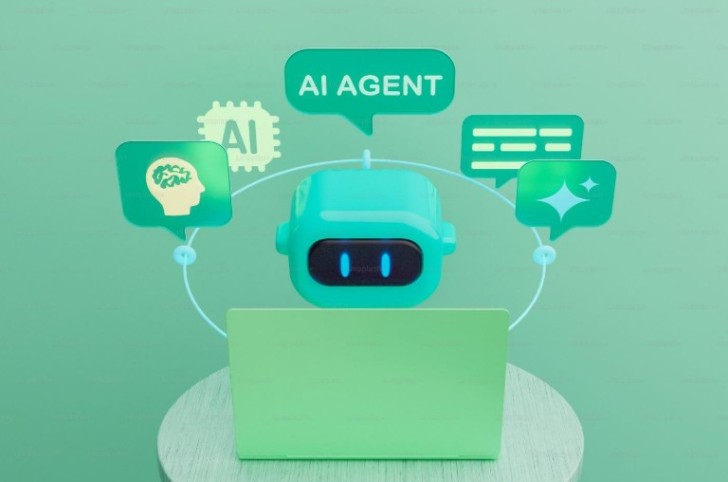Introduction
Understanding AI agents is becoming essential as artificial intelligence continues redefining how we work and automate digital processes. This topic explores how AI agents operate, why they matter, and how they support intelligent automation across various industries. As technology advances, AI agents have evolved from simple rule-based scripts into powerful autonomous systems capable of decision-making, learning, and independent action.
What Is an AI Agent?
An AI agent is a software-based system that can observe its environment, analyze information, make decisions, and take actions to achieve specific goals. Unlike ordinary programs that follow fixed instructions, AI agents adapt to new situations and learn from experience. These agents are the backbone of many modern technologies, from virtual assistants and automated customer service bots to smart home devices and autonomous machines. Their ability to act autonomously sets them apart from traditional software.
How AI Agents Work
AI agents function through a continuous loop known as the perception–decision–action cycle. They begin by perceiving inputs from their environment, such as user requests, sensor data, or system logs. Next, they process this information to decide the best course of action using logic, rules, or machine learning models. Finally, the agent takes action—executing a command, sending a notification, adjusting a system, or interacting with software. This ongoing cycle allows them to work intelligently, respond to real-time changes, and continuously refine their behavior.
Types of AI Agents
AI agents come in several forms based on autonomy and complexity.
Simple reflex agents respond directly to current conditions without memory, making them useful for straightforward automation.
Model-based agents store information about past interactions, helping them understand context.
Goal-based agents select actions based on specific objectives, such as navigating a route or completing a workflow.
Utility-based agents, the most advanced type, evaluate possible outcomes and choose actions that maximize benefits, making them more adaptable and intelligent.
Key Technologies Behind AI Agents
Several core technologies enable AI agents to function. Machine learning allows agents to learn patterns and improve over time. Natural language processing helps agents understand and respond to human language, enabling conversational systems. Reinforcement learning teaches agents through rewards and penalties, helping them develop optimal strategies. Robotics and autonomous systems use sensors and actuators to interact with the physical world, while cloud computing provides large-scale processing power and access to external data sources. Together, these technologies give AI agents the intelligence and flexibility they need.
Applications of AI Agents
AI agents are used extensively across industries. In business, they automate workflows, manage emails, and analyze trends. Customer support systems rely heavily on AI chatbots that provide instant assistance. In healthcare, AI agents help analyze medical images, support diagnoses, and guide treatment decisions. Finance uses autonomous trading agents, fraud detection systems, and personalized financial assistants. Smart homes leverage AI agents to adjust lighting, temperature, and security functions, making daily life easier and more efficient.
Benefits of AI Agents
The benefits of AI agents are significant. They automate repetitive tasks and free up human time for more complex activities. They increase accuracy by reducing human error and enhance decision-making with real-time data analysis. AI agents can operate 24/7, providing continuous support and monitoring. Their scalability allows them to handle large volumes of work across massive systems. These advantages make AI agents essential tools for modern organizations looking to improve efficiency and performance.
Challenges and Ethical Concerns
Despite their advantages, AI agents come with important challenges. Data privacy is a major concern because agents often rely on sensitive information. Bias in training data can lead to unfair or inaccurate decisions. Security risks arise if agents are hacked or manipulated. Over-reliance on automation may also reduce human oversight. Addressing these issues requires responsible design, transparency, and strict ethical standards to ensure AI remains trustworthy and safe.
The Future of AI Agents
The future of AI agents promises even greater autonomy, intelligence, and collaboration. We can expect multi-agent systems where multiple AI agents work together to solve complex problems. Agents may soon create or train other agents, accelerating innovation. Personalized AI companions will likely become common, supporting everyday tasks and decisions. As smart cities, industries, and homes continue to develop, AI agents will play a central role in shaping the next generation of intelligent automation.
Conclusion
AI agents represent a powerful shift toward intelligent automation. By observing, learning, and acting autonomously, they enable smarter systems across nearly every field. Understanding how these agents work and their impact helps us prepare for a future where automated intelligence becomes an essential part of daily life. With responsible development and thoughtful implementation, AI agents will continue unlocking new possibilities for innovation and efficiency.
 Editorial staff
Editorial staff

 Editorial staff
Editorial staff


